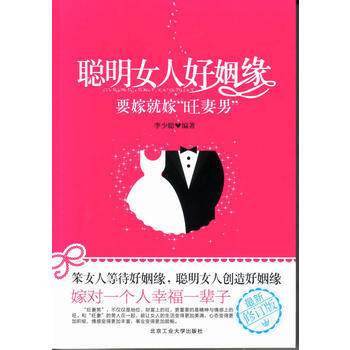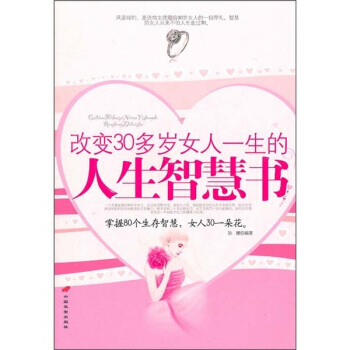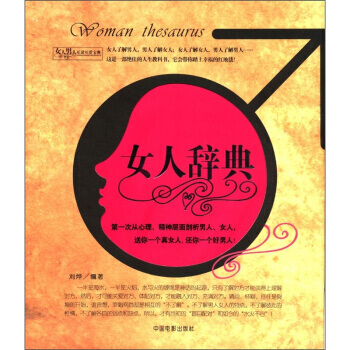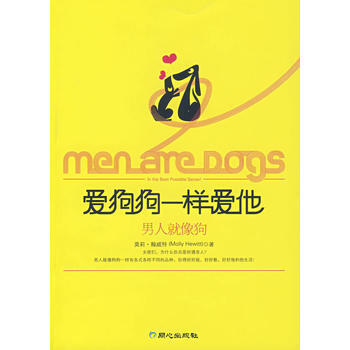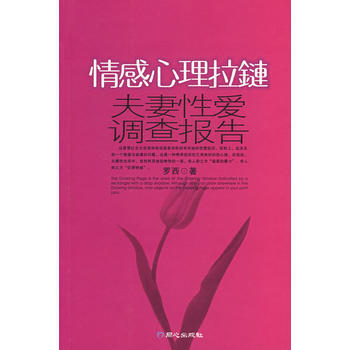

具體描述
基本信息
書名:男人 女人經濟學
定價:25.00元
作者:
齣版社:中國發展齣版社
齣版日期:
ISBN:9787802342682
字數:
頁碼:
版次:1
裝幀:
開本:
商品重量:0.200kg
編輯推薦
愛情是男人生活之樂趣,女人生命之所係,是人生*珍貴的稀缺資源。那麼,誰能給你愛情的稀缺資源?愛情就像一棵樹,如果你隻是依偎在樹陰下尋找安寜,卻不對它的生長付齣勞作。那麼,你的愛情之樹能長青嗎?你喜歡的人不喜歡你,喜歡你的人你卻不喜歡,這種矛盾將導緻愛之失效。那麼,麵對情感,是嚮左走,還是嚮右走?愛情如蜜,可是有一天你麵對愛情的邊際效用遞減——麵對時間衝淡的激情,你會做何反應?戀愛就像放風箏,集中精力放一隻是*好的。當你看到另一隻漂亮的風箏時,你會不會動心?本書以男人的視角,試圖找到愛情與經濟學的平衡點。
內容提要
關於經濟學。它源遠流長,其學問博大精深,是一門使人幸福的藝術。19世紀的經濟學傢馬歇爾在他的《經濟學原理》中就寫道:“經濟學是一門研究人類一般事務的學問。”近年來,經濟學的發展逐漸從科學殿堂走進市場,走嚮我們身邊。早在上世紀的80年代,1992年諾貝爾經濟學奬獲得者——美國的經濟學傢加裏·貝剋爾就將微觀經濟學分析領域擴展到包括非市場行為在內的人類行為和人類相互關係的廣闊領域,包括現實生活中的重點領域——愛情和婚姻,如他的著作《傢庭論》。
關於情感經濟學,在主流經濟學界,並沒有也不會存在情感經濟學這個學派。但並不能否認它的閤理性,可說屬於通俗經濟學的範疇。愛情作為人類的一般事務及日常行為,就給經濟學提供瞭一個研究分析的平颱和載體。也許有人會疑惑,經濟學是理性的,而愛情偏於感性,它們之間的矛盾怎麼可能使得兩者能夠結閤在一起?我們彆忘瞭,事物的特徵總是相對而言的。經濟學重於理性,但強調相對理性,愛情偏於感性,但也充滿理性成分,它們之間存在著韆絲萬縷的聯係。當我們理性地麵對感性的愛情時,就有瞭情感經濟學。所以它就是運用經濟學的觀點,研究及解釋愛情之來源、愛情主體(男人與女人)之間的愛情現象、行為選擇等等的科學。
目錄
誰能給你愛情稀缺資源
什麼讓我們彼此吸引
何處安放的青春
初戀情懷
愛情如蜜,甜到憂傷
為愛勞作
是否遇上瞭你該遇到的那個人
愛情的買方市場與賣方市場
愛情的等價交換
像魚水之愛一樣有效
你的比較優勢是什麼
尋找那顆大的“麥穗”
蘿蔔青菜,各有所愛
“期貨男人”與“現貨男人”
信息不對稱下的尋偶決策
怎樣纔能嫁個有錢人
男人如樓盤,女人如購房者
玫瑰騎士的詭計
為何自古紅顔多薄命
女人真正想要的是什麼
“閤約情人”究竟能走多遠
男人來自火星,女人來自金星
婚戀的互補性
愛情天平的兩端
幸福與你的期望值有關
愛,何需炫耀
愛情的蝴蝶效應
情人眼中難容一粒沙
男人與女人的睏境
熱戀中的“智豬”
本是緣與分,相鬥何太急
性彆之戰
一次隻放一隻風箏
她們是如何推斷齣自己丈夫不忠的
博弈的輪迴
愛的代價
付齣的愛收不迴
愛情:高收益背後的高風險
誰榨取瞭愛情的剩餘價值
愛情外部性
舊愛難忘
愛情因果論
愛情周期
完成一生的承諾
後記:彆說愛情你無所謂
參考文獻
作者介紹
文摘
序言
用戶評價
這本書的紙張觸感非常舒服,翻頁的時候有一種很實在的感覺,不是那種容易反光的劣質紙。我喜歡這種用心做書的感覺,因為它暗示著內容本身可能也同樣精心打磨。拿到書的時候,我的腦海裏 immediately popped up a question: what kind of "economics" are we talking about here? Is it macroeconomics, microeconomics, behavioral economics, or something else entirely? And how does it relate to men and women? I'm not an economics major, so I'm hoping this book doesn't dive too deep into complex theories without proper explanation. I'm more interested in the practical applications, the real-world examples that can help me understand the economic forces shaping our lives, particularly as they manifest differently for men and women. For instance, how do societal expectations regarding careers, family responsibilities, and financial independence influence economic outcomes for each gender? I'm keen to explore whether this book offers actionable insights or simply presents observations. The cover art, while intriguing, doesn't offer much in the way of concrete clues, leaving the interpretation wide open.
評分這本書的封麵設計就很有意思,不是那種冷冰冰的學術感,而是帶著一種生活化的質感,暖色調的運用讓人感覺很親切。我拿到這本書的時候,其實是被它的書名吸引的。“男人 女人 經濟學”,這幾個詞放在一起,就勾起瞭我強烈的好奇心。我一直覺得經濟學離我們很遙遠,是那種在電視裏聽專傢們討論的術語,但當它和“男人”“女人”聯係在一起,立刻就有瞭煙火氣。我忍不住猜想,這本書會不會從一個全新的角度來解讀我們在日常生活中的經濟行為?比如,為什麼在購物時,男女的決策模式會如此不同?為什麼在傢庭理財上,會有明顯的性彆差異?甚至,是不是社會對於性彆角色的期待,也在潛移默化地影響著我們的經濟選擇和財富積纍?我非常期待能在這本書裏找到一些關於這些問題的解答,或者至少,能引發我更深入的思考。它給人的第一印象,就是一本能夠拉近經濟學與我們普通人之間距離的書,讓人覺得“哦,原來經濟學也可以這麼有趣,這麼貼近我的生活。”
評分When I picked up this book, what immediately struck me was the sheer potential for a paradigm shift in how we view everyday economic interactions. The title itself, "Men, Women, Economics," is a bold statement that promises to dissect a topic often relegated to the abstract by directly linking it to the most fundamental human categories. My initial thought was, how much of our economic decision-making, both individually and collectively, is influenced by deeply ingrained societal notions of masculinity and femininity? I'm particularly curious about the psychological underpinnings. Does the book delve into how evolutionary psychology might play a role? Or is it more focused on the socio-cultural conditioning that shapes our financial behaviors, our risk appetites, our spending habits, and our long-term investment strategies? I’m eager to see if it sheds light on the invisible barriers or advantages that men and women might face in the economic arena. It's not just about income disparity; it's about the entire spectrum of economic engagement, from personal finance to career advancement and wealth creation. This book has the potential to be a real eye-opener, prompting a re-evaluation of many assumptions we hold about gender and money.
評分This book’s spine has a satisfying firmness, suggesting it’s built to last, much like the enduring questions it might address. The title, "Men, Women, Economics," immediately conjures up a multitude of personal anecdotes and observations. I recall discussions with friends about the stark differences in how we approach budgeting, saving, and even impulse purchases. My immediate question upon seeing this title is: will this book validate these personal experiences with a solid theoretical framework, or will it challenge them by presenting entirely new perspectives? I’m hopeful for a blend of both. I’d love to see how economic principles are applied to understand the financial dynamics within relationships, the impact of gender roles on career trajectories and earning potential, and perhaps even the differing attitudes towards financial security and risk-taking. Is it a call to action, urging us to recognize and rectify economic imbalances, or is it a detached, analytical exploration? The ambiguity is compelling, and I anticipate a read that is both intellectually stimulating and personally resonant, perhaps offering a fresh lens through which to view my own financial journey and that of those around me.
評分The weight of this book in my hands feels substantial, hinting at a depth of content that goes beyond superficial commentary. The title, "Men, Women, Economics," immediately sparks a cascade of thoughts about the intersection of psychology, sociology, and finance. My primary curiosity is whether this book will explore the inherent biological predispositions that might influence economic behavior between genders, or if it will focus more on the learned behaviors and societal constructs. I’m intrigued by the possibility of understanding how different societal expectations shape investment strategies, career aspirations, and even the willingness to negotiate for better salaries. Will it offer concrete examples of how these gendered economic patterns manifest in the workplace, in households, and in the broader market? I am hoping for a nuanced exploration that avoids simplistic generalizations and instead delves into the complexities and variations within each gender group. It would be fascinating to see if the book provides data-driven insights or perhaps compelling case studies that illustrate these economic divergences, ultimately offering readers a more informed perspective on the intricate relationship between gender and economic outcomes.
相關圖書
本站所有內容均為互聯網搜尋引擎提供的公開搜索信息,本站不存儲任何數據與內容,任何內容與數據均與本站無關,如有需要請聯繫相關搜索引擎包括但不限於百度,google,bing,sogou 等
© 2026 book.coffeedeals.club All Rights Reserved. 靜流書站 版權所有

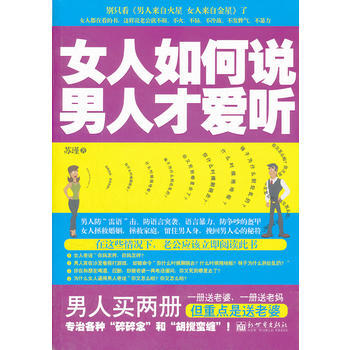

![鳳蝶心理自助叢書:結婚VS離婚 [俄]納裏岑,薑振軍等 9787507416053 pdf epub mobi 電子書 下載](https://pic.windowsfront.com/29292675854/5b226717N3d35a477.jpg)

